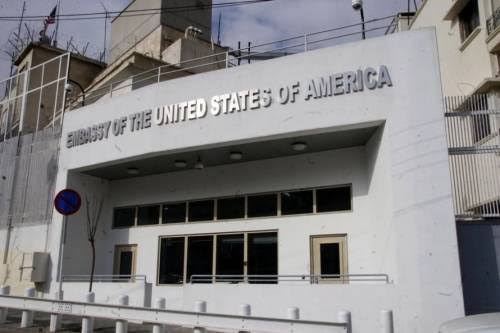The United States Department of State has said that the US consulate building to be constructed at Eko Atlantic City, Victoria Island, Lagos will inject at least $95m into the Nigerian economy throughout its construction.
Ambassador Mary Leonard expressed appreciation to the Federal Government and the Lagos State Government for their support in her remarks at the groundbreaking ceremony,
She said the project would further strengthen the bilateral relations between Nigeria and the US, while also contributing to the Nigerian economy.
Leonard added, ‘Our vision for this consulate campus is to create a facility that both honours the vibrant relationship between the United States and Nigeria and communicates the spirit of American democracy, transparency and openness.’
On her part, the Consul-General, Claire Pierangelo said, ‘Nigeria and the United States have a long-standing history of people-to-people engagement fostering bridges between our two nations.
We look forward to the many accomplishments we will continue to achieve together in the future.’
Governor Babajide Sanwo-Olu, described the planned new US consulate in Lagos as a consolidation of the deep relations between Nigeria and the US.
‘As many of you would be aware, the relationship between the United States and Nigeria is a long and very cherishable one spread across several areas including military, security, commerce, education, energy, youth empowerment and many other areas.
‘The United States has invested hundreds of millions of dollars in Nigeria and Lagos State in particular. Just over a month ago, we opened the Kimberly-Clark (facility) for operations, which was a very big manufacturing complex in Ikorodu and I was very happy that the consulate-general and the whole team of the American embassy were in attendance.’
The construction project will take approximately five years, with completion expected in 2027.
A statement on the US Department of State website on the project, read in part, “
‘The new consulate construction project will directly benefit the Nigerian people. Throughout construction, an estimated $95m will be invested in the local economy through local subcontractors and suppliers.
‘Overall, the project will employ approximately 2,500 Nigerian citizens, including engineers, architects, artisans, construction workers, and administrative staff.’













